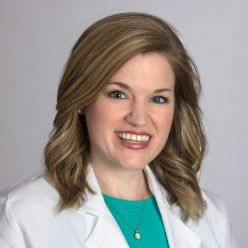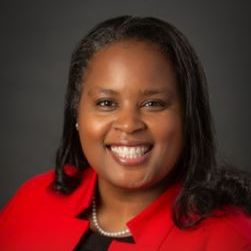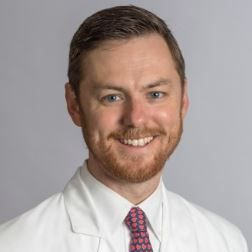St. Jude Family of Websites
Explore our cutting edge research, world-class patient care, career opportunities and more.
St. Jude Children's Research Hospital Home

- Fundraising
St. Jude Family of Websites
Explore our cutting edge research, world-class patient care, career opportunities and more.
St. Jude Children's Research Hospital Home

- Fundraising
Back-to-School Q & A with Healthcare Providers
Learn what the health care experts have to say about preparing for back-to-school. Back-to-school lists should include HPV vaccination. HPV vaccination is recommended for 9–12-year-olds. If someone missed out on on-time HPV vaccination, it is routinely recommended through age 26. For people aged 27–45, talk with your health care provider to see if HPV vaccination is right for you.
Chris Barry, PA-C, MMSc, DFAAPA
JMA Pediatrics
Jennifer Berger, MD
Memphis Pediatrics
Associated with Le Bonheur Pediatrics
Michelle Bowden, MD
University of Tennessee Health Science Center
Melissa Hudson, MD, FASCO
St. Jude Children's Research Hospital
Margot Savoy, MD, FAAFP
Lewis Katz School of Medicine
Temple University
Jason Yaun, MD, FAAP
Tennessee Chapter of the American Academy of Pediatrics
What are the most important things parents and caregivers can do now to help prepare their children for a successful school year?
Chris Barry, PA-C, MMSc, DFAAPA , Jeffers, Mann, and Artman Pediatrics: Parents should learn about the recommended vaccines for their child. It is important that parents know which vaccines are recommended and why. This will allow parents to have an educated discussion with their child’s health care provider and avoid surprises and last-minute decision-making on vaccines.
Jennifer Berger, MD, Pediatrician, Memphis Pediatrics, Associated with Le Bonheur Pediatrics: The most important thing that caregivers can do for their children to prepare them for a successful school year is to make sure they have had an annual physical with their pediatrician. Children should also be up to date on vaccines. In addition, at their physical checkup, they can address any school concerns such as learning difficulties, behavior problems, and other needs.
Michelle Bowden, MD, Associate Professor, The University of Tennessee Health Science Center: As parents, we want to make sure we’re using the summer to prepare our kids for a successful school year. It’s important to consider how we’re helping them to be their best physically, emotionally and academically. Summer provides great opportunities for fun, relaxation, and rest—all of which are important emotionally for our kids. Academically, it’s important to continue to have our kids read and do "everyday math" in the kitchen, on road trips, or by playing games with their parents or siblings. Summer provides great opportunities to get outside and play, fill up on fresh fruit and veggies, and make sure that children get their annual checkup and any age-appropriate vaccines.
Melissa M. Hudson, MD, FASCO, Director, Survivorship Division, Department of Oncology, St. Jude Children’s Research Hospital: Be sure that your child is up to date on recommended vaccines that prevent serious and potentially life-threatening infections. Your family health care provider or health department clinic can advise you about the specific vaccine recommendations based on the age of your child.
Margot Savoy, MD, MPH, FAAFP, Associate Professor, Family & Community Medicine; Associate Professor, Population Health & Urban Bioethics, Lewis Katz School of Medicine at Temple University: Double check your records: Not only so you are sure you are up to date on your recommended vaccines but also to make sure you have two copies—one for your safe at home and one for the school nurse. Schedule a back-to-school wellness check—lots of great preventive care gets overlooked when you miss the wellness check. Children can also get their sports physical and double check their blood pressure. Now’s the time to make sure you get all your questions answered about your child’s health.
Jason Yaun, MD, FAAP, President, Tennessee Chapter of the American Academy of Pediatrics: Parents and caregivers should begin thinking about back-to-school preparations early so that they don’t get caught in the back-to-school crunch. Many pediatric offices become very busy in the weeks leading up to school. Think about your child’s annual wellness visit and make sure they are up to date on vaccinations to allow them to start school on time. Being up to date on vaccines also ensures that they stay healthy protect their peers as well.
What questions should parents and caregivers be asking their child’s health care providers at well-child appointments as they get ready to send their children back to school?
Barry: Parents should ask about their child's overall physical and mental health and should bring up concerns or questions to their child's health care provider. Parents should be looking for the best ways to keep their children healthy and safe, both physically and mentally.
Berger: Parents should be asking their health care providers about vaccinations, sports forms and any other school concerns. Many schools require forms to be filled out for medication use at school or school accommodations for learning disabilities. These can be presented at the time of their checkup to discuss issues and plans.
Bowden: It's important to remember that your doctor may not know what concerns you have for your child from the previous year, so make a list before you go the visit. Your doctor will complete the physical and ask you some questions about your child's social and emotional development. You may want to have your child's hearing and vision checked, and it's important to make sure that your child is up to date on their vaccines.
Hudson: Well-child check-ups provide the opportunity to discuss your child’s physical, intellectual and social/emotional development. Check-ups are also a time to highlight the importance of healthy behaviors and impact of health risking behaviors, especially among adolescents who are becoming more personally responsible for their behaviors.
Savoy: We may have been to the doctor’s office a lot for illnesses or injuries and don’t realize that there is not always time to review all the prevention options for which your child may be due. During your back-to-school wellness visit you can talk about not only what needs to get done today but also what is coming up in the next year.
Yaun: Parents and caregivers should bring up any concerns they have about their child’s health at their well-child appointment as they get ready for school. Especially bring up any school-related concerns. Consider your child’s sleep, school performance, mental health, nutrition, physical activity and more. Pediatricians can help provide guidance around these topics and provide needed intervention or treatment for any issues. Parents and caregivers should use every visit to ensure their child is up to date on vaccinations, both for school entry requirements and to ensure that we are all doing our part to keep all children safe from vaccine-preventable diseases.
How do you encourage HPV vaccination at well-child appointments?
Barry: It is important for the entire office team to be on the same page regarding the HPV vaccine. Any weak link in the vaccination chain can derail our mission to immunize as many children and young adults as possible. In addition to educating office staff on the importance of HPV vaccination, medical practices should take steps to normalize HPV vaccination. This means recommending the HPV vaccine, rather than asking if the parent/patient wants it. A slight change in wording makes a huge difference in vaccine acceptance.
Berger: We discuss the HPV vaccine at every checkup starting at the age of 9 years old. Actually, I bring it up to families at the 8-year-old checkup to let them know that it will be offered the following year. I discuss this vaccine as a cancer prevention vaccine and tell my families how important I believe that it is for our youth.
Bowden: I am grateful that we have a vaccine that prevents cancer. I think it's important for patients and families to realize how common HPV infections are. We estimate that 80% of people will be infected at some point, and there's no way to know which of those infections will lead to cancer. By choosing to get your child vaccinated, you can protect him or her from HPV-related cancer in the future. What a gift that is to your child and the future adult they will become.
Hudson: I share with families how common HPV exposure is in adulthood and the association of chronic HPV infection and adult cancers. I advise that we have many years of research with the currently available vaccines to show that HPV vaccination is safe, effective and produces a durable response to protect against HPV cancers. I emphasize that vaccination in childhood before HPV exposure is the best way to protect against HPV cancers in adulthood. I also share that because the immune response to the vaccine is better in children younger than 15 years of age, starting the vaccine series before this time only requires one booster (two total shots) in children with healthy immune systems.
Savoy: I want parents and the child to know that their health is important to me, and I want to protect them whenever I can. So, I strongly recommend getting the HPV vaccination because I want to reduce their risk of developing cancer or warts in the future.
Yaun: We emphasize using every well child appointment as an opportunity for vaccines, and the HPV vaccine is no different in this regard. We have a conversation with parents and caregivers as children become old enough for the vaccine. We discuss the importance of the vaccine, why we give it when we do, its tremendous success and its robust safety profile. I often let parents know that I have vaccinated my own children with the HPV vaccine and that I feel confident in its protection against numerous types of cancer.
Why should children beginning at 9-years-old receive the HPV vaccination?
Barry: There are several good reasons to vaccinate against HPV at the first opportunity, which is at age 9 in the U.S. Since the vaccine is preventive, giving it well before the potential for exposure to HPV is ideal. In addition, the body's immune system produces a more robust immune response to the HPV vaccine the earlier it is given. Giving the HPV vaccine at age 9 also separates it from Tdap and meningococcal vaccines, which are required for school. Not to mention, vaccinating at age 9 moves the HPV vaccine to its own schedule, rather than giving it concurrently with Tdap and meningococcal vaccines. When recommending three vaccines together, I have often seen parents refuse the HPV vaccine on the grounds that their child is getting "too many vaccines."
Berger: I recommend the vaccine at 9 years old because the data supports better immune response when children receive the vaccine at younger ages versus waiting until later. I also discuss that we want cancer prevention before adolescents could be exposed to the virus.
Bowden: The HPV vaccine is safe and effective for kids starting at age 9. To be fully protected, the vaccine requires 2 or 3 vaccines over a 6-month time frame. By starting at age 9, your child will only have to receive 2 vaccines and can be fully vaccinated by the time they need their other 7th grade vaccines.
Hudson: Starting HPV vaccination at age 9 provides good immune response and HPV cancer protection and reduces the number of vaccinations historically administered at the adolescent 11–12-year well-check visit. Parents also may not focus on the sexually transmitted nature of the infection when advised for HPV cancer prevention in a prepubertal child.
Savoy: Life gets busy and often we can’t make it back to visits as often as we should. Also, for some families having multiple shots on the same day can be stressful. We know at the 11-year-old visit there will be a Tdap and meningococcal vaccine. We can add HPV to that visit too or we can get it out of the way with a dose at 9 and 10 years.
What are the benefits to receiving the HPV vaccination at age 9 years rather than later in childhood?
Barry: The main reason is that body's immune system produces a more robust immune response to the HPV vaccine the earlier it is given. In addition, giving the HPV vaccine earlier in childhood (age 9) moves the discussion away from sexual relations and towards cancer prevention.
Bowden: Kids' immune systems are so great at making strong responses when they receive vaccines at younger ages. By getting the vaccine at 9, we know that the immune response is strong and long-lasting to protect kids for decades to come. From your child's perspective, I find that kids often prefer to get fewer vaccines at their 11-year-old visit, which is possible if they've already completed their HPV series in the previous years.
Hudson: Starting HPV vaccination at age 9 years is associated with a good immune response and reduces the number of recommended booster shots. Starting early also assures protection before potential HPV exposure later in adolescence or young adulthood.
St. Jude collaborated with the American Cancer Society and National HPV Vaccination Roundtable on a special issue of Human Vaccines & Immunotherapeutics to compile the latest evidence showing the importance of on-time HPV vaccination by the 13th birthday. Starting HPV vaccination at age 9 is one way to achieve higher coverage levels. The St. Jude HPV Cancer Prevention program has a range of free, downloadable resources for your use in promoting HPV vaccination during the back-to-school period. Fact sheets are available at stjude.org/hpv under resources. In addition, access FAQs for parents and caregivers and more resources through the Path to a Bright Future campaign.





